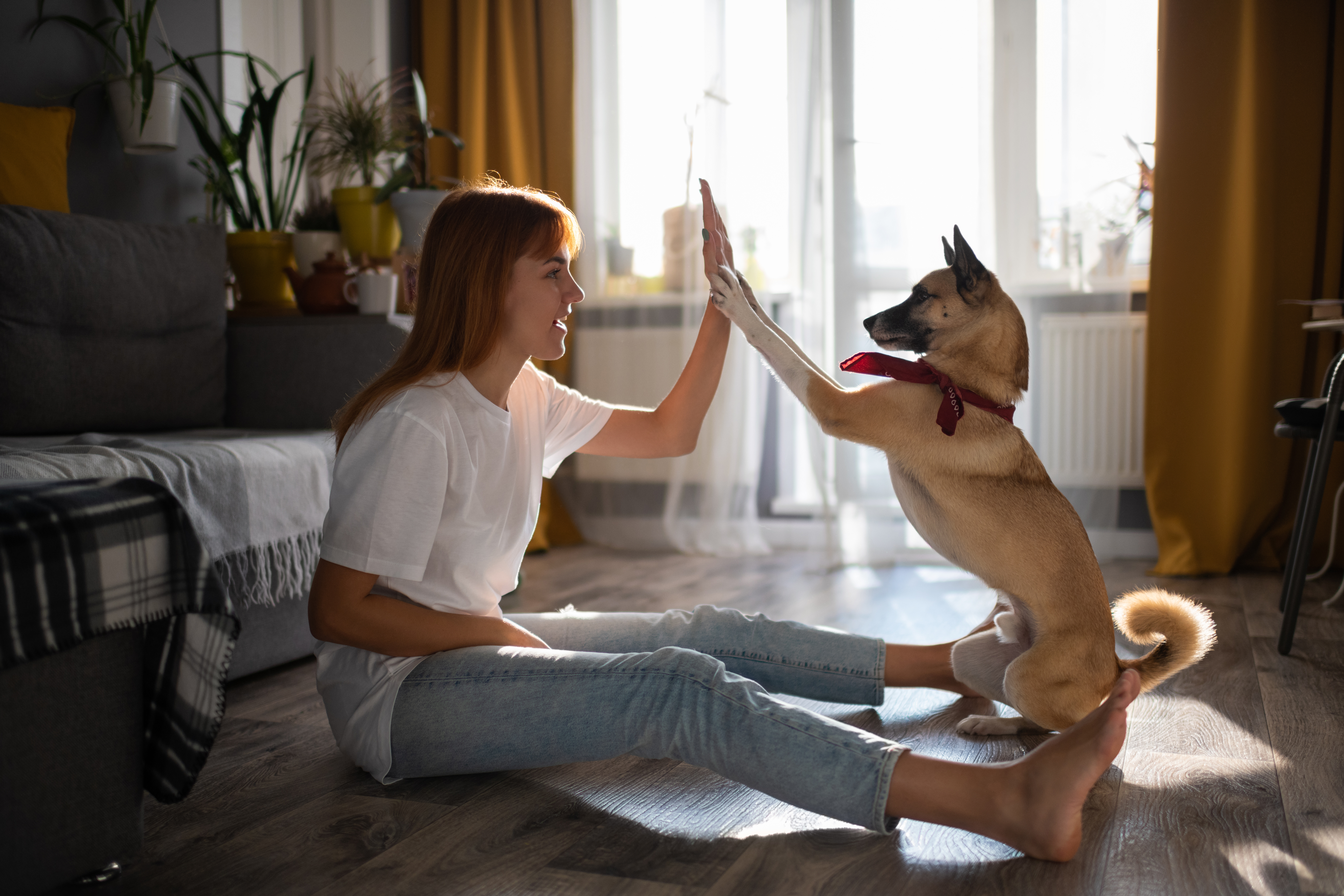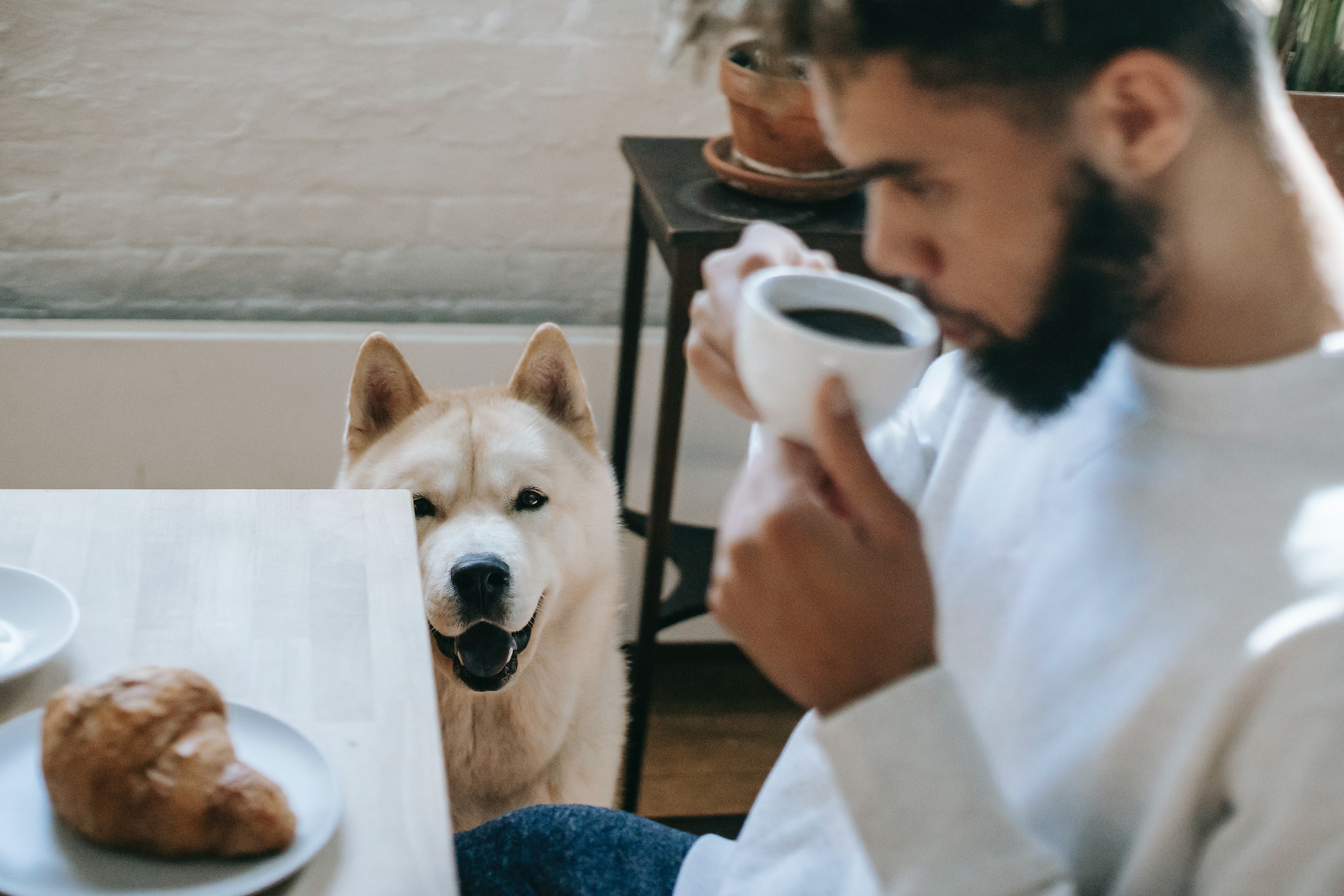When it comes to training dogs, there’s no one-size-fits-all solution. Dogs can develop behavioral issues for a variety of reasons. Fortunately, dogs’ problem behaviors can be corrected with the right treatment (and some time and patience). A team of UPenn researchers wanted to understand how best to accomplish this.
Since dogs learn so much from their people, the researchers considered how we, the parents, may affect our dogs’ training. The study, published in Frontiers in Veterinary Science, indicates that people’s particular personalities matter more than you’d think.

For the research, 75 dogs and their human partners attended a six-month veterinary behavioral program. The people filled out a human personality assessment questionnaire, as well as a dog behavior questionnaire on their furry partner’s behalf. At both three and six months into the study, participants filled the dog behavior questionnaire out again.
The dog assessment asked for ratings on things like excitability, separation anxiety, and responsiveness to training. For the human personality assessment, participants agreed or disagreed with statements about their openness to new experiences, extraversion or introversion, and more.
What The Data Says Affects Dog Training And Behavioral Therapy
Ultimately, researchers found that a dog’s age, sex, and size can affect behavioral therapy’s success. At the end of the program, larger dogs with aggression issues showed greater improvement than smaller dogs. One possible reason for this is that people are more attuned to larger dogs’ behavior since they present more of a physical safety risk. As you’d expect, older dogs are more resistant to change as well.
Fascinatingly, the data also indicates differences in the way human extroverts and introverts’ dogs learn behaviors. Powell, the lead author of the study, explained:
“Extroverted owners were more likely to see improvements in dogs’ fearful behaviors and introverted owners less so. Introverted owners may find it tough to leave their dog or give it space if it is required as part of the dog’s treatment.”

The researchers acknowledge the possibility that people with higher levels of openness embraced newer training methods and secondary opinions. Therefore, extroverted parents were less likely to have fearful dogs. Still, the conclusion of the study acknowledges that more research is necessary in this realm.
“The associations between canine behavior and owner extraversion and openness did not persist at 6-months, so further research is needed to understand the long-term influence of owner personality on behavioral treatment outcomes.”
“There Are No Bad Dogs…”
Importantly though, the human parent’s compliance is what really impacts training effectiveness. People who won’t or can’t accept training methods will likely end up with a misbehaving dog.
Sometimes, people don’t even know when they’re reinforcing bad behaviors. This study indicates your personal attachment style could be convincing your dog these naughty actions are okay. Things like smiling when your unbearably cute dog jumps up to steal table food can really make a difference.

With more research and analysis, veterinarians hope to offer targeted advice someday and predict individual dogs’ treatment outcomes. Given how many dogs with correctable behavioral issues end up in shelters, this research is all the more important. For more info, read the complete study here.
H/T: NBC News
 Toledo, United States.
Toledo, United States.
